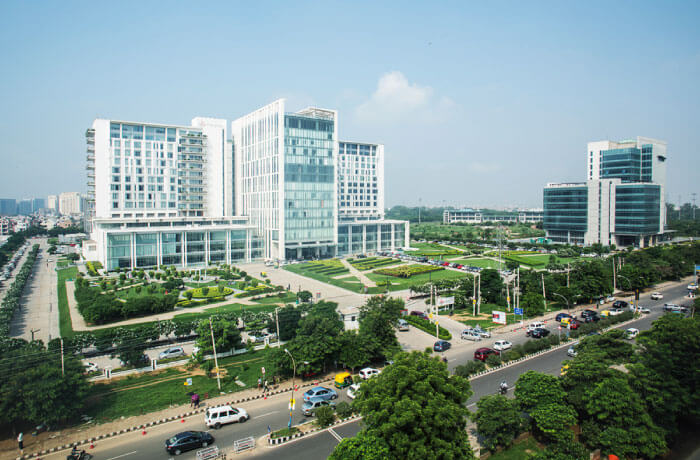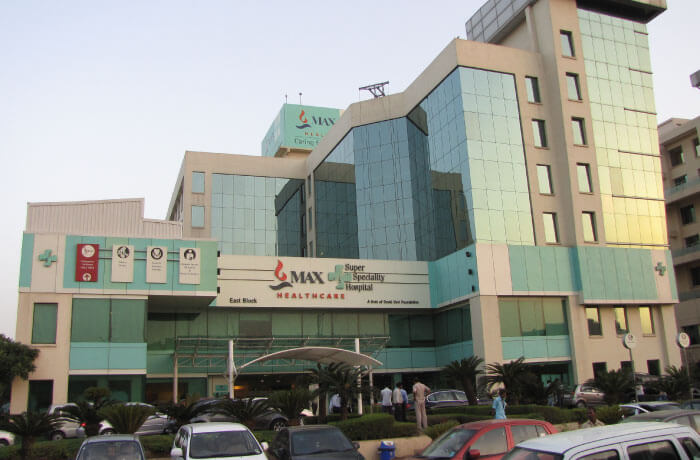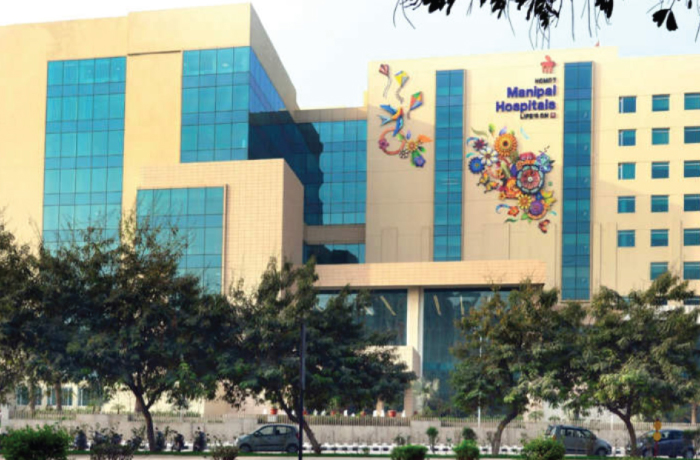Urology
Kidney Transplant Surgery Cost in India
India
Kidney transplant surgery is a procedure in which a new donor kidney is inserted in our body. Kidney diseases are treated through this procedure | GetWellGo
Top Doctors for Urology

Dr. Shafiq Ahmed
View Doctor
Dr. Vikram Sharma
View Doctor
Dr Rajiv Yadav
View Doctor
Dr. Anupam Bhargava
View Doctor.jpg)
Dr. Rajesh Ahlawat
View Doctor.jpg)
Dr. Mukesh Patekar
View Doctor
Dr. Paresh Bansal
View Doctor
Dr. P Vamsi Krishna
View Doctor
Dr. Sandeep Harkar
View Doctor
Dr. Gagan Gautam
View Doctor
Dr. Virender Sekhon
View Doctor
Dr. Anil Mandhani
View Doctor
Prof. Dr. Özgür Haki Yüksel
View Doctor
Dr. Anant Kumar
View Doctor
Dr. Pankaj Wadhwa
View Doctor
Dr. Abhinandan Mukhopadhyay
View DoctorInclusions in the Package
Kidney Transplant Treatment Cost in India 2
Kidney transplant means the surgical removal of a patient’s failing or damaged kidney and replacement with a functioning donor kidney.
- Minimum Cost - $ 13,000
- Maximum Cost - $ 13,000
- Days in Hospital – 7 days
- Outside Hospital Stay – 45 days
Top Doctors for Urology
- Dr. Paresh Bansal
- Dr. Anil Mandhani
- Dr. Anurag Khaitan
Kidney Transplant Treatment Cost in India
Kidney transplant treatment in India has become standard and has established itself among patients from around the world as a reliable option as well as lower costs. Kidney transplant is the medical procedure by which one kidney of a healthy person is transplanted to the body of another person with failing kidneys, and where the person has end-stage kidney disease or kidney failure.
Although the kidney transplant cost varies greatly, including, hospital fees, the surgeon’s fees, cost of using a living or deceased donor, pre and post-operation care, medications and cost related to the condition of the patient.
Why is getting a kidney transplant in India a better option?
Medical tourism has already reached new heights and India has emerged as a primary medical tourist country mainly for kidney transplantation programme due to well-equipped medical facilities and professional workers. The status of healthcare has been developed fast in India, and it has become a most desirable destination for those who are searching for the efficient and relatively cheap treatment.
The medical care is perfect and doctors are extremely skilled; prices for different treatments are considerably lower than other countries. It has been found that Indian hospitals have taken up responsibility of pre and post-operative care and the medical facilities include use of sophisticated and modern methodologies like laproscopy and minimal access surgeries among others. They also provide various special services for the international patients including assistance in visa and accommodation. India has very high kidney transplant success rate according to those who have undergone the kidney transplant surgery and due to the extension of the Indian health care system all over the world, patients find it easy to come to India for the treatment. Affordable immunosuppressive medications have also been developed, extending the cost-saving advantage for long-term in India.
Who requires a Kidney Transplant?
Kidney transplant is required when a person’s kidneys are unable to remove wastes, extra fluids, and toxins from the blood, a situation they refer to as end-stage renal disease or kidney failure. These organs of the urinary system are important in the stability of electrolyte especially potassium, blood pressure control and elimination of waste products in the blood. Kidney transplant becomes necessary especially when the kidneys are not functioning properly, or the other forms of treatments such as medications, and dialysis cannot work.
Conditions that require Kidney Transplant
-
Chronic Kidney Disease
-
Diabetic Nephropathy
-
Hypertensive Nephropathy
-
Polycystic Kidney Disease
-
Glomerulonephritis
-
Kidney Damage due to Infections or Autoimmune Diseases
-
Congenital Abnormalities
-
Recurrent Urinary Tract Infections
What are the different types of Kidney Transplant?
Living Donor Kidney Transplant: This kidney transplant is one that is obtained from a living donor who can be a relative or a friend of the recipient. Living donor transplants are quicker, safer, and carry a longer prognosis than transplant from a deceased donor. There are several subtypes, such as paired kidney exchange and pre-emptive transplant, which may be done before dialysis to get better results.
Deceased Donor Kidney Transplant: A deceased donor kidney transplant occur when the donor has passed on and therefore offers an opportunity for patients with no living donor. Blood and tissue typing match are important but long waits and lower success rates are a problem.
Paired Kidney Exchange Transplant: Paired Kidney Exchange Transplant occurs where the donor-recipient pairs and exchange their kidneys to make another compatible organ for the recipient. This method also increases the number of compatible kidney and thus the number of transplant options.
Preemptive Kidney Transplant: Preemptive kidney transplant, which is done before the beginning of dialysis, is more effective due to the decrease of life-threatening complications, choice of healthier recipients with no co-morbid conditions, improved long-term health, reduced costs of dialysis treatment and total freedom from the abnormalities of chronic renal dialysis.
FAQs
1. What is the case of a kidney transplant?
- Recipients of kidney transplants generally have end-stage renal disease and have not had favorable outcomes to other interventions including dialysis. Other relative factors that are used include health status, age, and other diseases that are also present.
2. What is the Kidney transplant success rate?
- The outcomes for kidney transplants are quite good; greater than 90% of living donor kidneys are functioning at one year and approximately 80% of kidneys at five years. Deceased donor kidneys also perform well enough but slightly worse when compared to living donor ones.
3. What are the dangers by undergoing the kidney transplant surgery?
Like any major surgery, kidney transplant carries risks, including:
-
Infection
-
Bleeding
-
Blood clots
-
Rejection of the new kidney
-
Complications from anaesthesia
4. What is the convalescence period of a kidney transplant patient?
- A majority of patients are discharged after a stay of 3 to 7 postoperative days depending with their progress in recovery. It will still take several weeks to months, in some cases, to regain health, and after-care appointments are recommended to ensure the proper functioning of kidneys along with other aspects of health.
Factors affecting cost of Kidney Transplant Surgery
What are the factors on which kidney transplant cost depends?
Kidney transplant cost in India generally includes the following components
- Consultation Fees: This fee includes the evaluation of the patient’s past health records, clinical examination and advice on any test which the patient might require.
- Patient Condition: The degree of the disease and its stage has a direct impact on the final cost for the treatment.
- Geographical Location: Kidney transplant costs differ depending on which city or province the transplant is done in.
- Hospital and Infrastructure: This cost can vary from one type and quality of the hospital to another greatly. It must also be noted that the number of days of the hospital stay or the type of nursing that the patient will require can also assist in raising the cost.
- Medical Tourism Packages: For international patients, some of the hospital provides package travel rates that cover accommodation, local transport and other related services at subsidized rates.
- Expertise and Experience of Medical Professionals: experienced urologists offering delicate services may receive enhanced charges.
- Cost of Medications: The prices of the mentioned drugs depend with the dosage and the recommended course of treatment and therefore will impact the total cost of the treatment.
- Diagnostic Tests and Scans: requires a series of tests and assessments before transplant that involves blood test, imaging and other investigations to determine degrees of renal insufficiency or dysfunction.
- Kidney Procurement: costs of living donor transplant are for evaluation of the donor and the surgery while those of the deceased donor transplant may include the cost of organ procurement and matching.
- Post-Transplant Care: routine check in evaluation of kidney function and medication regime can accrue greatly to the regular overall cost of treatment.
Cost related to Kidney Transplant Surgery in India
What is Kidney Transplant cost in India?
To some extent the kidney transplant cost in India depends on: location of the hospital; reputation of the hospital; type of the donor; and the complexity of the treatment. Kidney transplant cost in India ranges from $15,000 to $ 30,000.
Top Hospitals for Urology
Top Hospitals for Urology
How much does Kidney Transplant Surgery cost in different cities in India?
The kidney transplant treatment cost in India varies from $15,000 to $ 35,000 depending on the city and particular hospital. However, they still need to look at other factors like after-surgery care, subsequent appointments and the fact that they will need to be on immunosuppressive drugs after the surgery among other factors when comparing prices with many developed nations.
How much does Kidney Transplant Surgery cost in different countries?
There are notable regional variations in the cost of a kidney transplant. An overview of the projected costs for kidney transplant in various nations is shown below:
| Country | Cost |
|
Turkey |
from $20,000 |
|
Thailand |
from $25,000 |
|
South Africa |
from $30,000 |
|
Germany |
from $60,000 |
|
UK |
from $70,000 |
|
USA |
from $250,000 |
TREATMENT-RELATED QUESTIONS
Yes, our professional medical team will help you in getting the estimated cost for the treatment. The cost as you may be aware depends on the medical condition, the choice of treatment, the type of room opted for etc. All your medical history and essential treatment details would be analyzed by the team of experts in the hospitals. They will also provide you with the various types of rooms/accommodation packages available and you have to make the selection. Charges are likely to vary by the type of room you take.
No, we don't charge patients for any service or convenience fee. All healthcare services GetWellGo provide are free of cost.
Yes, if you wish GetWellGo can assist you in getting your appointments fixed with multiple doctors and hospitals, which will assist you in getting the second opinion and will help you in cost comparison as well.
A relationship manager from GetWellGo will be assigned to you who will prepare your case, share with multiple doctors and hospitals and get back to you with a treatment plan, cost of treatment and other useful information. The relationship manager will take care of all details related to your visit and successful return & recovery.
The price that you get from GetWellGo is directly from the hospital, it is also discounted and lowest possible in most cases. We help you in getting the best price possible.
You have to check with your health insurance provider for the details.
GetWellGo will provide you end-to-end guidance and assistance and that will include finding relevant and the best doctors for you in India.
Contact Us Now!
Fill the form below to get in touch with our experts.








